8. Hallam Foe (2007)
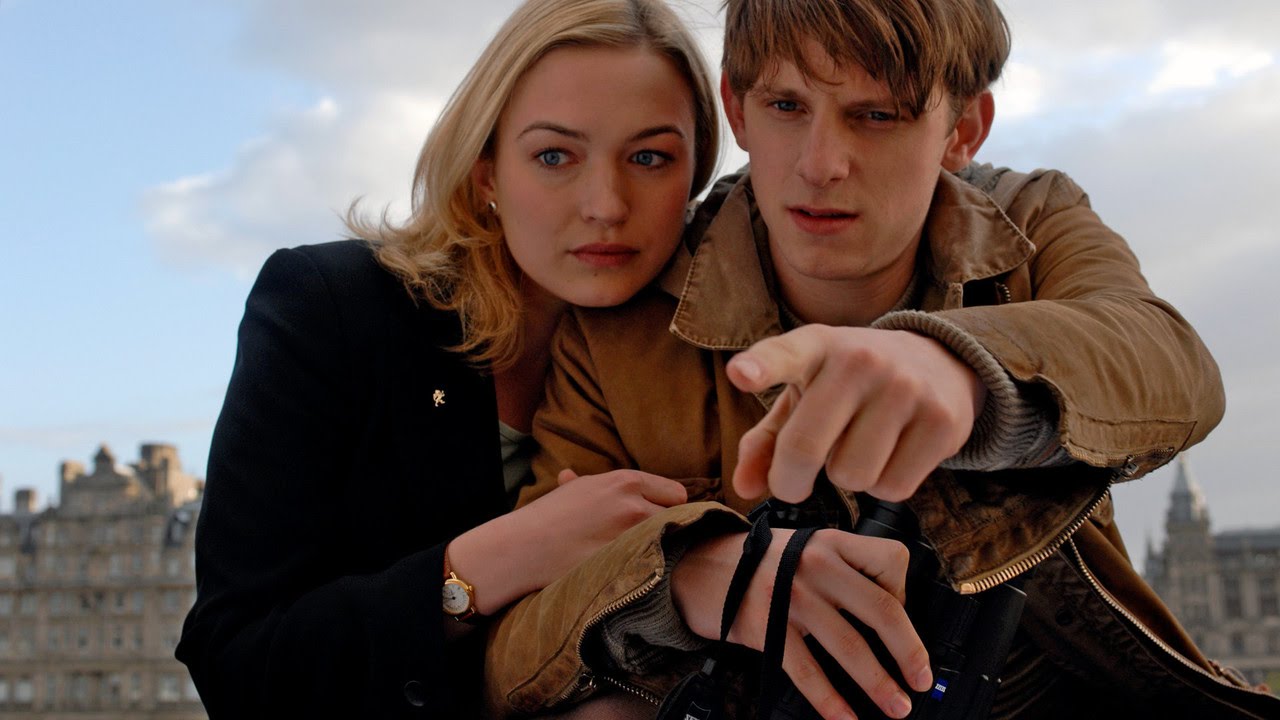
Alternatively known as Mister Foe in the states, David Mackenzie’s British drama based on Peter Jinks’ novel follows Hallam Foe (Jamie Bell), a 17-year-old boy who spends most of his time spying on others from his tree house that is decorated with a huge wall-to-wall photograph of his beautiful deceased mother.
He is convinced that his unpleasant stepmother (Claire Forlani) is somehow responsible for his mother’s death. Their hatred towards each other grows until it is suddenly diffused after they have sex, and replaced with confusion, angst and shame – leading him to move to Edinburgh and abandon his childhood home.
He soon finds work as a dishwasher at a hotel. His boss, Kate (Sophia Myles), is a young woman who looks exactly like his late mother. After nights of watching her through her windows and stalking her, they begin a relationship that is based on misplaced desires and undealt-with-loss. His insecurity and anti-social nature soon shifts as his life begins to find a form. Until his stepmother finds him and discovers his mother’s doppelganger.
With an angsty, hip soundtrack, and distinctive dialogue that somehow subtly highlights everybody’s dysfunctional thoughts and feelings, the movie is ultimately made by Jaime Bell’s unique portrayal of a disillusioned, confused character whose heart has been stolen and ripped apart.
9. New York Stories (Woody Allen’s Segment: Oedipus Wrecks) (1989)
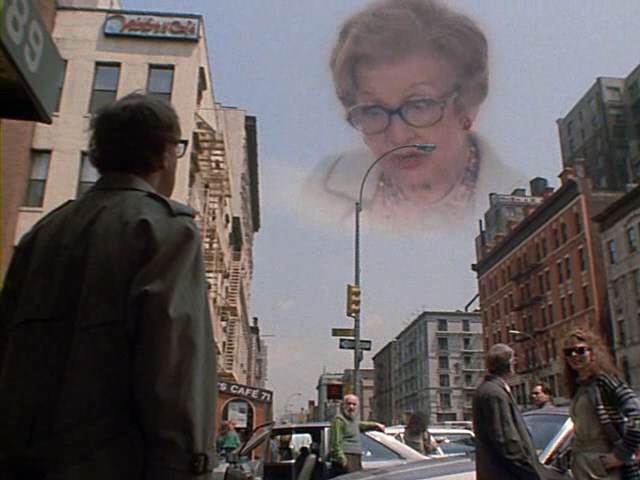
‘New York Stories’ is an anthology film which consists of three short films comprising of around BLAH minutes each, that are thematically linked through New York City. The first is ‘Life Lessons’, directed by Martin Scorsese, the second is ‘Life Without Zoë’, directed by Francis Ford Coppola and written by Coppola and his daughter, Sofia Coppola. The last is ‘Oedipus Wrecks’, directed, written by and starring Woody Allen.
As with most Woody Allen movies, the therapist’s office is where all the exposition happens. New York lawyer Sheldon (Woody Allen) starts by complaining about his overbearing and overly critical mother (Mae Questel) and blatantly states how he wishes she disappears.
The issues extend from whether he is eating enough to his choice in women, specifically the divorced, single mother Lisa (Mia Farrow) who is his fiancée (bonus – one of her kids is Kristen Dunst in her first screen roll ever). After all of them go to a magic show and she is invited on stage to be part of a magician’s disappearance act, she actually disappears with no explanation to be found.
Although he is terrified at first, he comes to realise that life without his mother exposing his most embarrassing moments with everyone she meets isn’t too bad and that he can now finally relax. But not for long. His mother reappears in the most ridiculous and fantastical way.
He tries to see a psychic, Treva (Julie Kavner) who could help him and his mother, but soon falls in love with her – possibly since she is very similar to his mother and his repressed feelings are translated into erotic transference for his psychic, who is the key to solving his mother problem.
10. The Reader (2008)
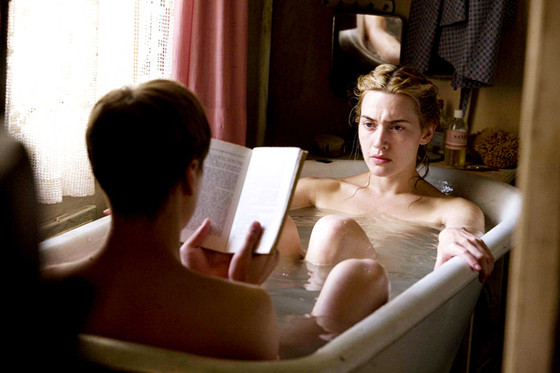
In Neustadt, Germany, the 15-year-old Michael (David Kross – an older Michael is portrayed by Ralph Fiennes) meets the older 36-year-old Hanna Schmitz (Kate Winslet in her Oscar winning role), in an alleyway where he is throwing up from Scarlett fever. She helps him home and behaves very much as a mother would – welcoming him to her home, walking him home and making sure he’s safe.
A bond is formed, and in return three months later, he visits her with flowers to thank her. Her maternal sternness orders the dirty Michael to take a bath, which embarrasses, confuses and arouses him at the same time. She seduces him by joining him and they begin an affair before even learning each other’s names.
Hiding this secret, Michael becomes distracted, distant, and avoidant of activities that may interfere with his time with her. Their relationship revolves around having sex and Michael reading books out loud to her. Soon, he starts to resent her for making him carry this heavy weight and her lack of interest in his personal life. He hides what he does with his free time to his actual family and friends. She responds by leaving him and her apartment with no goodbye.
Cut to 1966 where Michael is at law school observing the Frankfurt Auschwitz trials. With his head turned to pick up a pencil, he hears Hannah’s voice and slowly responds as he figures out that she was one of the SS guards responsible for allowing 300 Jews to burn in a Church in 1944, which was before their first meeting.
His feelings of victimization which have left him emotionally distant and unavailable to girls his own age and affected his relationship with his future daughter become meaningless in comparison to the pain she caused others, leaving him devastated and strangely sympathetic to this woman he thought he knew.
11. The Mother (2003)

Reminiscent of Fassbinder’s “Ali: Fear Eats the Soul”, Roger Mitchell’s fearless dark drama takes a deep look at a conventional British family drama that is anything but ordinary. It follows May (Anna Reid) whose husband dies on a family visit to London. After he dies, her life loses meaning as she seeps into the background of everyone else’s busy lives, including her children’s – Paula (Cathryn Bradshaw) and Bobby (Steven Mackintosh).
May soon fears that she has become another invisible old lady whose life is over, that is until she meets Darren (Daniel Craig), a married handyman half her age who is renovating her son’s house and is also her daughter’s lover.
May and Darren find that they talk easily, laugh at the same things, are comfortable together. They share a certain connection that triggers a sexual relationship and soon turns into a deeper emotional longing as May unwittingly continues to have an affair with her daughter’s partner and which can break up her family. As sex gives May a new reason to live again, even inspiring her to improve her appearance, fear adds years to Paula as she drinks her paranoia away until she looks almost as old as her mother.
With beautifully analysed characters who have hard lives to follow and fully comprehend, it is a surprise to learn that the director made the classic British comedy “Notting Hill”. Anne Reid won a BAFTA award for her performance as May since she managed to portray a mother, a grandmother and a lover without becoming a clichéd soap opera character.
12. Spider (2002)
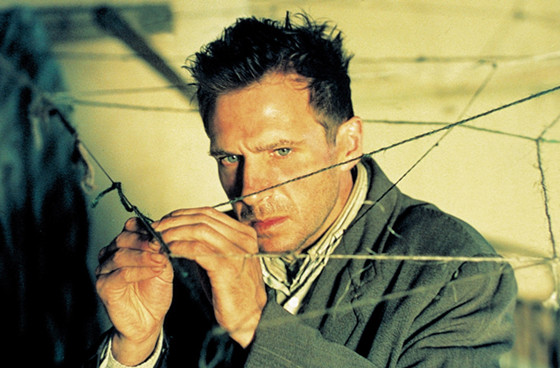
David Cronenberg’s psychological thriller based on the novel of the same name by Patrick McGrath, who also wrote the screenplay, follows Dennis Cleg (Ralph Fiennes), a man who is at a halfway house for mentally disturbed people after being released from a mental institution. He starts to piece together the loose strands of memory he holds close and recreates them through his imagination.
As he remembers, he views his memories as an adult outsider and the scenes he encounters are special to his psyche. He sees his mother (Miranda Richardson) groping with his father, his mother in a silky night gown she wore for his father, them peeling potatoes together, his aggressive, alcoholic father (Gabrial Bryne) shouting at him, and him constantly going to the pub.
His trail of memories build up to his mother’s murder, at the hands of his father with the passive support of a prostitute, who looks very similar to his mother (especially since she is also portrayed by the same), and who moves into their house to serve as a replacement for his mother. THE infantile neurosis within Spider would have not have allowed his Oedipus complex to be completely resolved since he wasn’t able to suppress his urges and therefore unable to establish his own persona.
According to Freud, the three steps required to break with the Oedipus complex are: the inability to fulfil the wish for the mother, becoming disappointed by her, and maturing, and since Spider could not achieve any of these; he could not repress the complex. This leads him to carry his mother around with him constantly – imagining her as other people so that even his landlord turns into Miranda Richardson.
13. The Living And The Dead (2006)
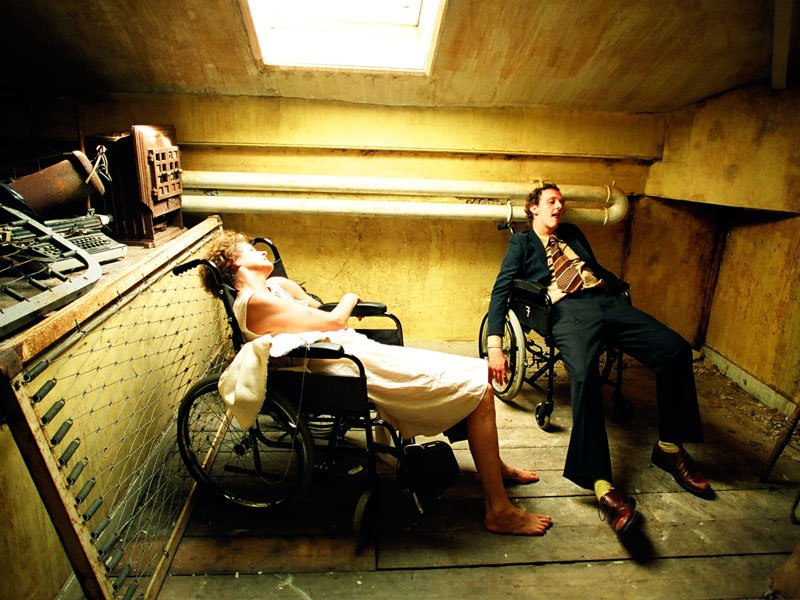
Simon Rumley’s underrated and fast-paced British thriller follows an unfortunate family in a gigantic country manor house in a series of time-lapses, blinking match-cuts and tragic misunderstandings.
When Donald Brocklebank (Roger Lloyd Pack) leaves his terminally ill wife, Nancy (Kate Fahy), and his schizophrenic son James (Leo Bill) to try solve their impending financial collapse, he hires nurse Mary (Sarah Ball) to take care of his wife and son, who both require constant care.
However, once he is gone, James becomes convinced that they do not need a nurse since he is not sick and he can take care of his mother all alone. Fixated on becoming ‘the man of the house’ but ill-equipped to handle or even understand his mother’s condition, he neglects her needs and becomes hyped on his newfound role.
He locks the nurse out of the house, gets mad at his mother for her inability to stand, and believes that the more she takes, the faster she will get better and force feeds her large quantities of her , nearly killing her. Ignoring her tearful begging to not undress her, and not to see her naked, he wants to help her but just does not understand that he is doing the opposite.
In a flashback, he refers to his father as ‘the man’, and asks if he even has a father.He does not even recognise anybody but his mother, whose lap his head is resting on and whose calming voice reassures him that the man who left the door open was his father. Incredibly disillusioned to the point of becoming a danger to both others and himself, Leo Bill, Lloyd Pack and Kate Fahy create horrific, heart-breaking characters that just want the best but end up at their worst.
14. A Dangerous Method (2011)
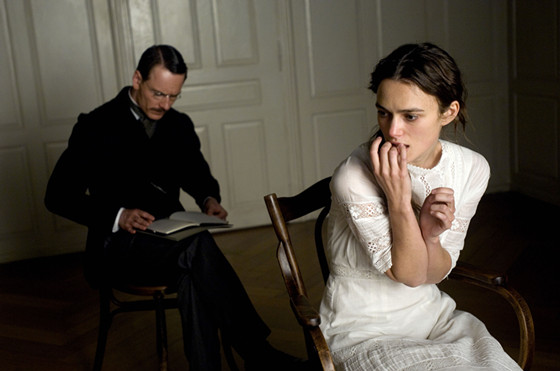
David Cronenberg’s historical drama adapted by writer Christopher Hampton from his 2002 stage play The Talking Cure, which was based on the 1993 non-fiction book ‘A Most Dangerous Method: The story of Jung, Freud, and Sabina Spielrein’.
It focuses on the turbulent relationships between Carl Jung (Michael Fassbender), founder of analytical psychology; Sigmund Freud (Viggo Mortensen), founder of the discipline of psychoanalysis; and Sabina Spielrein (Keira Knightley), initially a patient of Jung and later a physician and one of the first female psychoanalysts.
Through word association and dream analysis, Jung treats Spielrein’s hysteria and discovers that it is triggered by the humiliation and sexual arousal she felt as a child since her short-tempered, abusive father used to spank her naked for no apparent reason.
Her conflicting feelings expose that she probably was a stand-in for her mother in her punishment since she had had an affair. Jung and Spielrein’s attraction deepens through transference and the two begin an affair with the encouragement of another philandering, unstable psychoanalyst, Otto Gross (Vincent Cassel).
Soon Spielrein becomes a student of Jung and submits her thesis suggests that original conceptions develop from great conflict, like the attraction of opposites, breaking of taboos, and ideas are not restricted to sexual expression despite their roots in the biological drive to reproduce. Jung and Freud’s friendship crumbles as they begin to disagree more frequently on matters of psychoanalysis including Freud’s Oedipus complex.
15. Peeping Tom (1960)
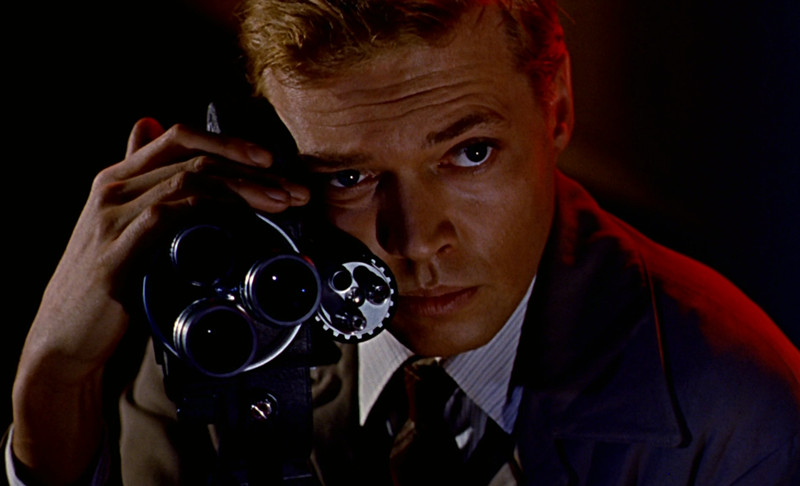
Michael Powell’s British thriller horror film written by the World War II cryptographer and polymath Leo Marks, revolves around a serial killer who murders women and films their dying expressions of terror. The film was incredibly controversial and received very harsh criticism by critics – which destroyed Powell’s career as a director in the United Kingdom. However, it later attracted a cult following.
Covertly filming his victims with a camera hidden under his coat, the film slips into the point of view of the camera viewfinder, creating a disturbing perspective that makes the audience a participant in his violent acts.
Mark is a shy, reclusive young man who hardly ever socialises, living in the house of his late father, who is revealed to have used him as a guinea pig for his psychological experiments on fear and the nervous system.
He kept his son under constant watch, filming his every move – including his reaction to when his mother was on her deathbed. His bedroom was filled with cameras that spied on him and thus led to his son’s obsession with photography and capturing the last breath of a person’s life on film – just like his mother’s.
While there is no explicit relationship between him and his mother, the Oedipus complex also includes severe hatred of the father to the point of murder – which therefore allows this film to be included. It’s analysis of renowned psychologists using their own family as test subjects reflects in many actual psychologists’ lives.
Peeping Tom has been praised for its psychological complexity especially in the Freudian relationships between the protagonist, his father, and his victims. It explores sexual repression, patriarchal obsession, voyeuristic pleasure and perverse violence in a way that was never explored in such a way before.
Author Bio: Susannah Farrugia is an undergraduate Psychology student at the University Of Malta. Her life is measured in films and television shows. She enjoys drawing scenes and designing posters based on the films she has seen.